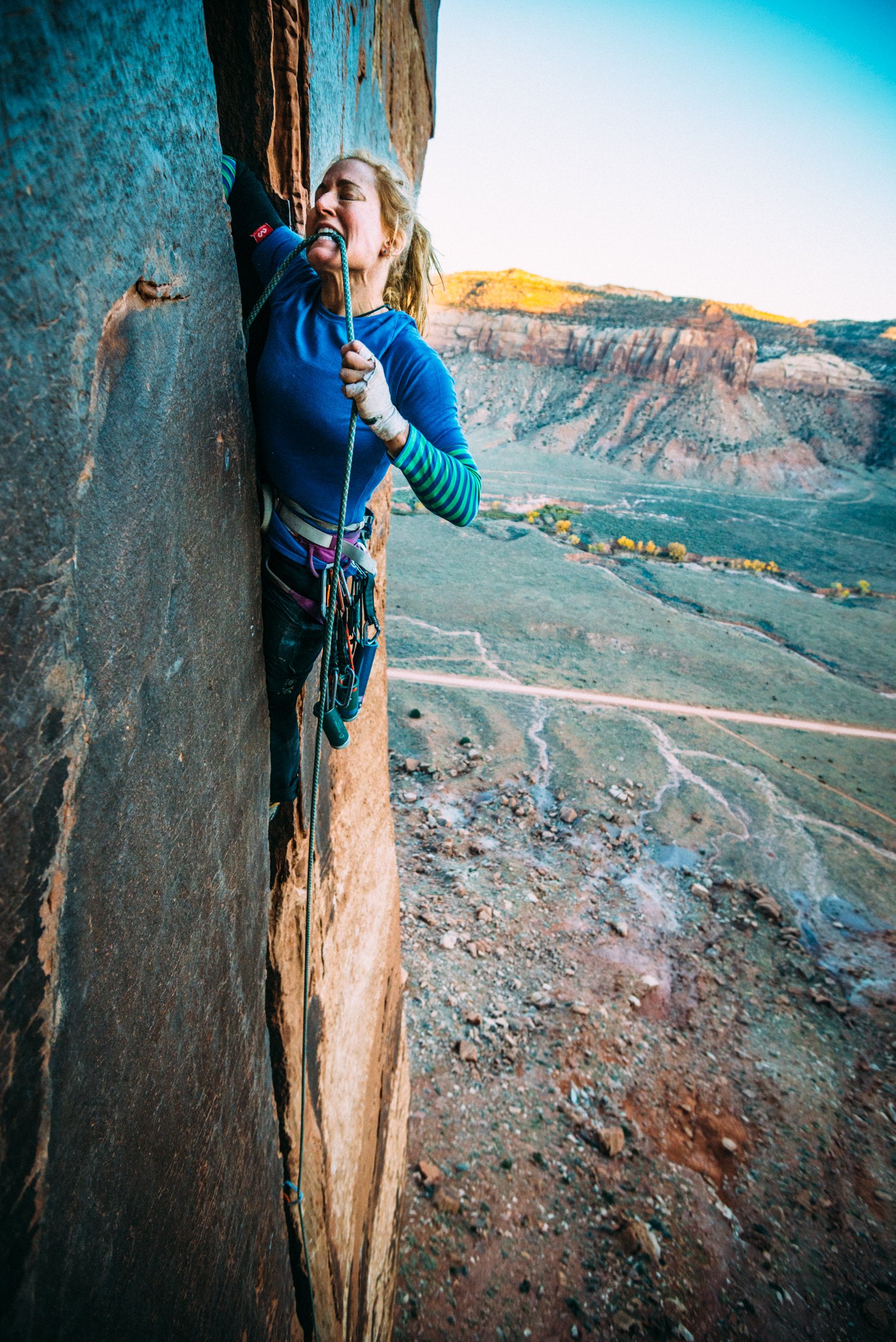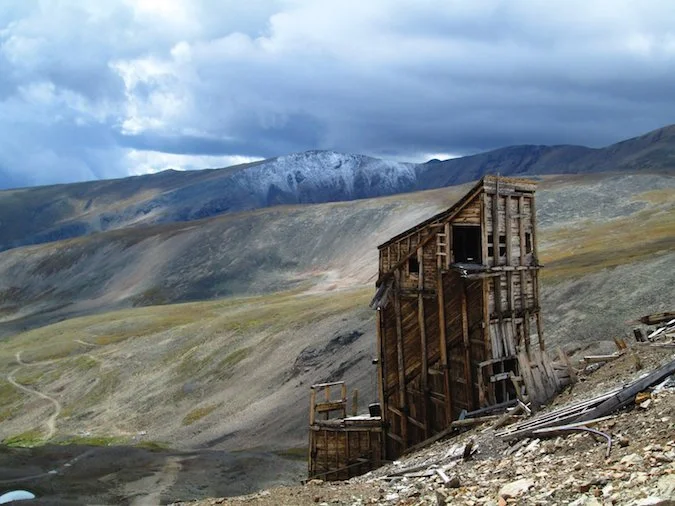In the midst of the action scoping out the exposure below. AAC member Savannah Cummins
By AAC Advocacy and Gov’t Affairs Manager, Amelia Howe
This article originally appeared in Summit Register 005.
I know what you are thinking, but no, you are not having a deja vu moment. There is momentum building behind the reconciliation package, but this time, it’s focused solely on climate and conservation investments. We need you and the collective climbing community to write to your lawmakers in support of these critical climate investments in order to get this passed and enacted into law as soon as possible.
The American Alpine Club and other organizations like the Outdoor Alliance spent a lot of time in 2021 educating our members and advocating for the passage of a major social spending package, better known as the Build Back Better Act. While the original package was full of things like universal pre-K and affordable healthcare, the AAC worked to support this package due to the myriad investments that would address the climate crisis and improve public lands infrastructure. Summit Register 004 contains an article outlining how this package fell apart right before the New Year due to Congress’ inability to reach a consensus surrounding the importance of these investments. This political rollercoaster led many to believe that there was no hope for the passage of Build Back Better. Now that lawmakers are back from winter break and diving into a midterm election season, it is clear that hope remains for important aspects of Build Back Better. There is especially exciting potential for the $555 billion to be invested in climate and public lands provisions.
Some of these provisions include efforts to:
+ Conserve threatened landscapes
+ Create climate adaptation plans within the Forest Service so they can better address how changing temperatures are impacting natural resources
+ Dedicate additional National Environmental Policy Act (NEPA) resources for agencies
+ Better resource wildfire planning and response
+ Address and reform fossil fuel development processes on public lands
+ Fund climate resilience projects on public lands
+ Invest in urban parks and trail systems
+ Increase access to public lands and trails
+ Create a Civilian Climate Corps
PC: AAC member Calder Davey
Climate change and aging public lands infrastructure should be at the top of mind for climbers when it comes to issues to address and advocate for in 2022. From a climber’s perspective, changes in climate will undoubtedly impact access to climbing and will, in turn, negatively impact the recreation economy. Inconsistent and longer wildfire seasons impact access to outdoor climbing opportunities during the summer and fall, and ice routes that once were classic are now rarely seen. It is easy to identify how our collective inability to act on climate will impact the sport. But the impacts of climate change touch every aspect of life, and these impacts on climbing are only a small piece of why these investments are so important.
An investment of this nature could change the trajectory of the US’ response on climate change, and the impacts will be deeply felt at the local community level. If you are excited about the prospect of these critical investments in climate action and public lands restoration, this is the moment to let your lawmakers know.














